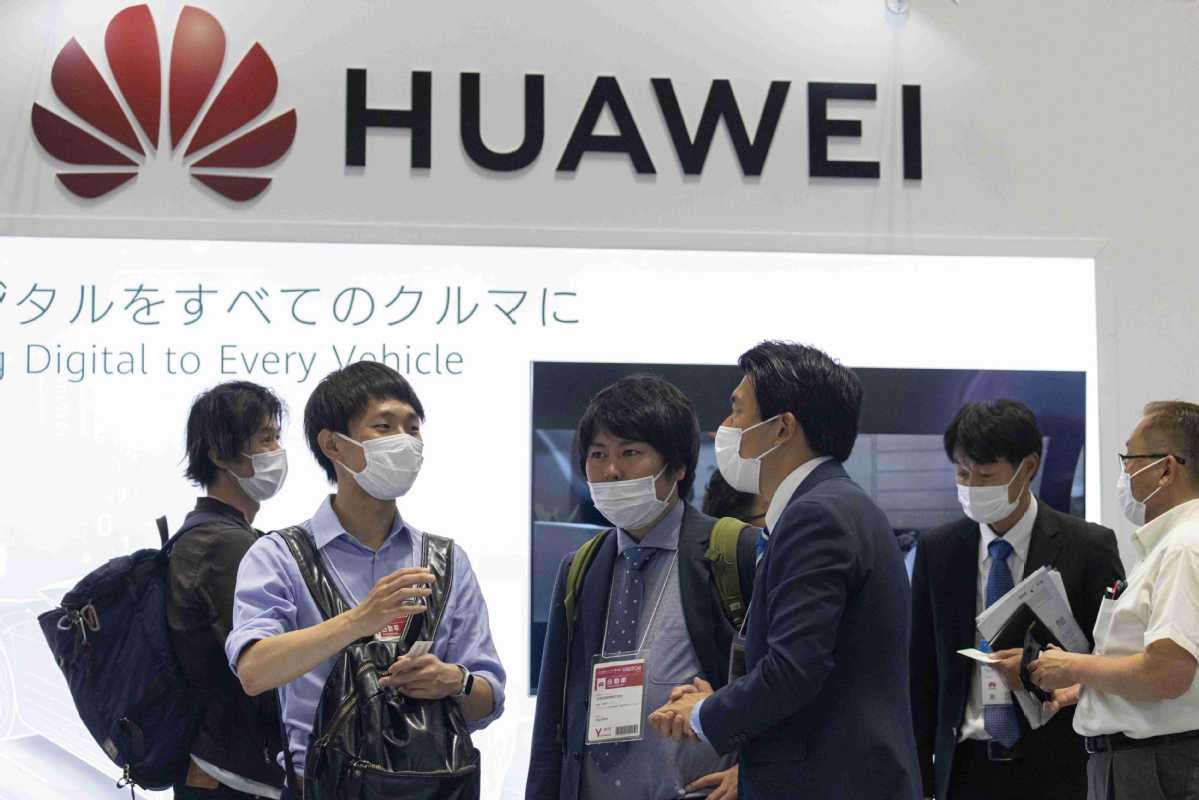
Huawei Technologies Co said on Tuesday that protecting intellectual property is the only way to achieve innovation and charging reasonable licensing fees for using its patented technology is the result of innovation rather than the purpose of production.
The company made the comments after Japan's Nikkei Asia reported that Huawei has approached about 30 small to mid-size companies in Japan to seek licensing fees for use of its patented technology.
Huawei said in a statement to China Daily that the company aims to promote innovation and protection of intellectual property rights through licensing its patented technology.
Mutual recognition of intellectual property among enterprises can create a positive innovation cycle of "invest-return-reinvest" in high-value technology research, enhance the sustainable innovation ability of the industry, and provide consumers with more competitive products and services, Huawei said.
Currently, Huawei is one of the world's largest patent holders, thanks to its sustained investment in innovation. According to Clarivate, a leading global IP consultancy and analytics firm, by the end of 2021, there were a total of 46,322 declared 5G-standard essential patent families, and Huawei was tops, owning 5,108 patent families with a share of 18 percent.
And Huawei was once again the most active patent applicant at the European Patent Office last year, surging 27.1 percent.
"When we looked at the figures, we were very struck by this development. Huawei is about 1,000 applications ahead of the second most active applicant. It's a remarkable effort made in 2022," Aidan Kendrick, chief business analyst at the EPO, told China Daily.
Huawei's jump is in line with a broader trend of growing technological prowess among Chinese companies. Patent applications from Chinese companies at the EPO grew by 15.1 percent last year, marking the highest growth rate among the leading 20 patent-filing countries.
China is likely to soon overtake Germany and Japan as the country filing the second most patents with the EPO, as Chinese companies continuously grow in innovation prowess and embrace the international intellectual property system for IP protection, Kendrick said.
The United States remains the top patent filer with the EPO.
Xiang Ligang, director-general of the Information Consumption Alliance, a telecom industry association, said it is common practice for tech companies to charge fees for the use of their patents, and royalty rates Huawei charges are lower than those of its competitors such as Finnish telecom company Nokia and Sweden's Ericsson.
According to its official website, Nokia said in 2018 that it charges up to 3 euros ($3.58) per phone for its 5G standard essential patent portfolio. Ericsson said on its website that it charges $2.50 to $5 per device.
Xiang said Huawei deserves a reasonable return for its long-term investment into research and development.
According to Huawei, in 2022 alone, the company invested 161.5 billion yuan ($22 billion) into R&D. And from 2010 to 2019, it spent a total of about $90 billion on R&D.
Song Liuping, chief legal officer at Huawei, said earlier that royalty fees will not be a major revenue source for the company, and Huawei will continue to focus on developing telecom products and services.
"Protecting IP is key to protecting innovation. We are eager to license our patents and technologies to share our innovations with the world. This will help broaden the innovation landscape, drive our industry forward and advance technology for everyone," Song said.

